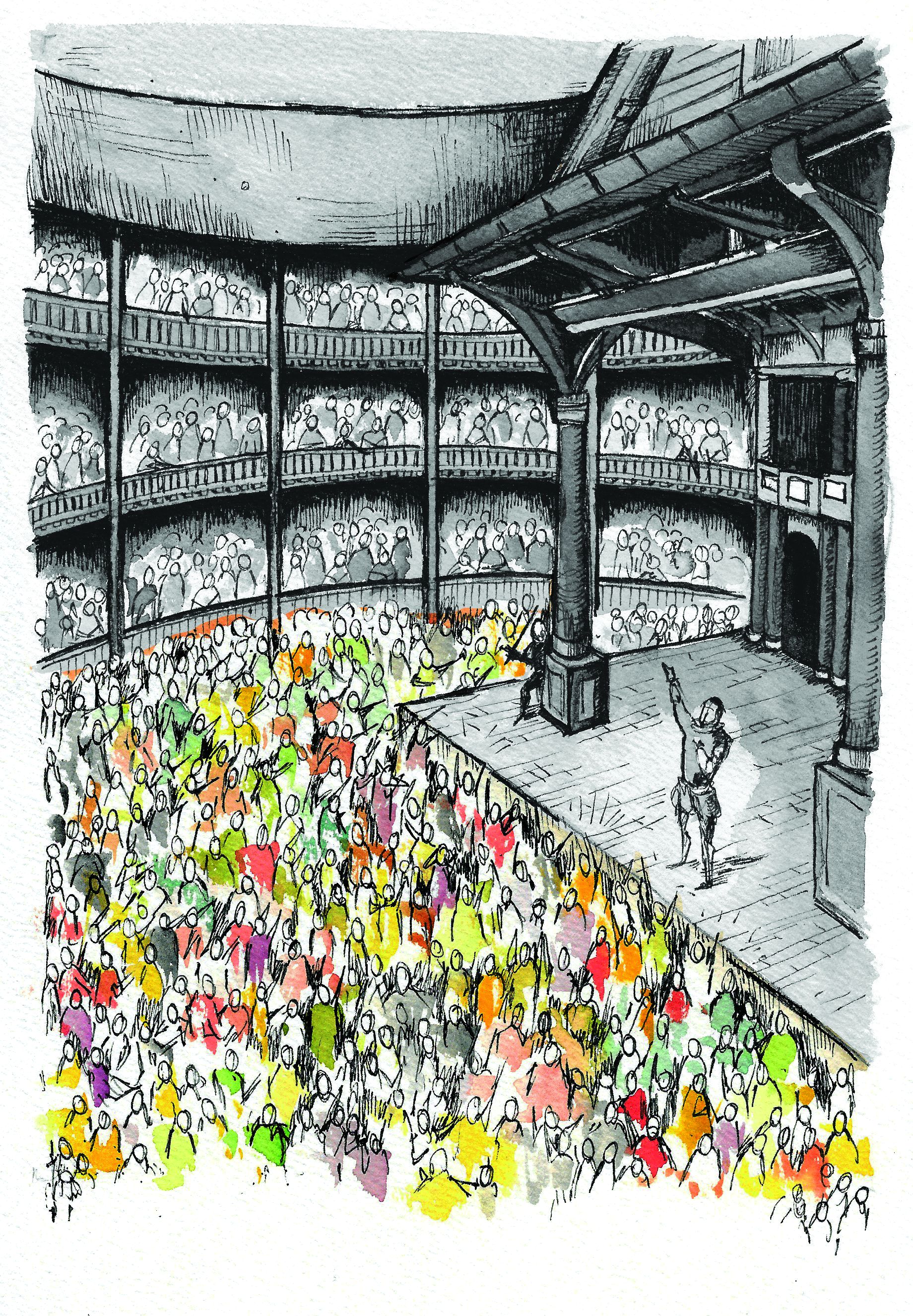April 23rd is National Shakespeare Day and marks the anniversary of the death of William Shakespeare. To commemorate this special day, we are sharing an interesting extract from the Oxford Illustrated Shakespeare Dictionary:
‘A man of fire-new words’—Love’s Labour’s Lost

It’s the breadth of Shakespeare’s vocabulary that is so impressive. The son of a glovemaker, his early years in Warwickshire gave him an understanding of nature and country life, and his Stratford-upon-Avon schooling gave him a great knowledge of Latin and classical literature.
Unlike many of his fellow playwrights, he didn’t have a university education, but his life experience in London was wide-ranging, including at one extreme the taverns and‘low’ life, and at the other the refined practices and behaviour of the court, where his theatre company presented plays for the entertainment of the monarch.
‘Art thou base, common, and popular?’—Henry V
A dictionary is a guide to the society of its time. In Shakespeare’s day, there were four main levels:
At the top
- The monarch
- The nobility
the gentry (or gentlemen)
- Younger sons of nobles (who were not classed with the nobility)
- Major land-owners
- Knights, with their squires and pages
- Magistrates
- Professional people, such as lawyers, physicians, and the clergy
the traders
- Merchants
- Yeomen farmers (owning land)
- Craftsmen (tailors, carpenters etc) and their apprentices
- Husbandmen (small farmers, usually renting land)
the lower orders
- Day labourers and cottagers
- Servants
- Beggars
All of these levels are present in the characters of Shakespeare’s plays, and his inventive and broad vocabulary reflects the speech of everyone from kings to beggars.
How will you be celebrating National Shakespeare Day?
 This extract is taken from the Oxford Illustrated Shakespeare Dictionary, a unique dictionary to unlock the mysteries of Shakespeare’s world, words and language, compiled by renowned English language expert David Crystal and Shakespearean actor and producer Ben Crystal.
This extract is taken from the Oxford Illustrated Shakespeare Dictionary, a unique dictionary to unlock the mysteries of Shakespeare’s world, words and language, compiled by renowned English language expert David Crystal and Shakespearean actor and producer Ben Crystal.
